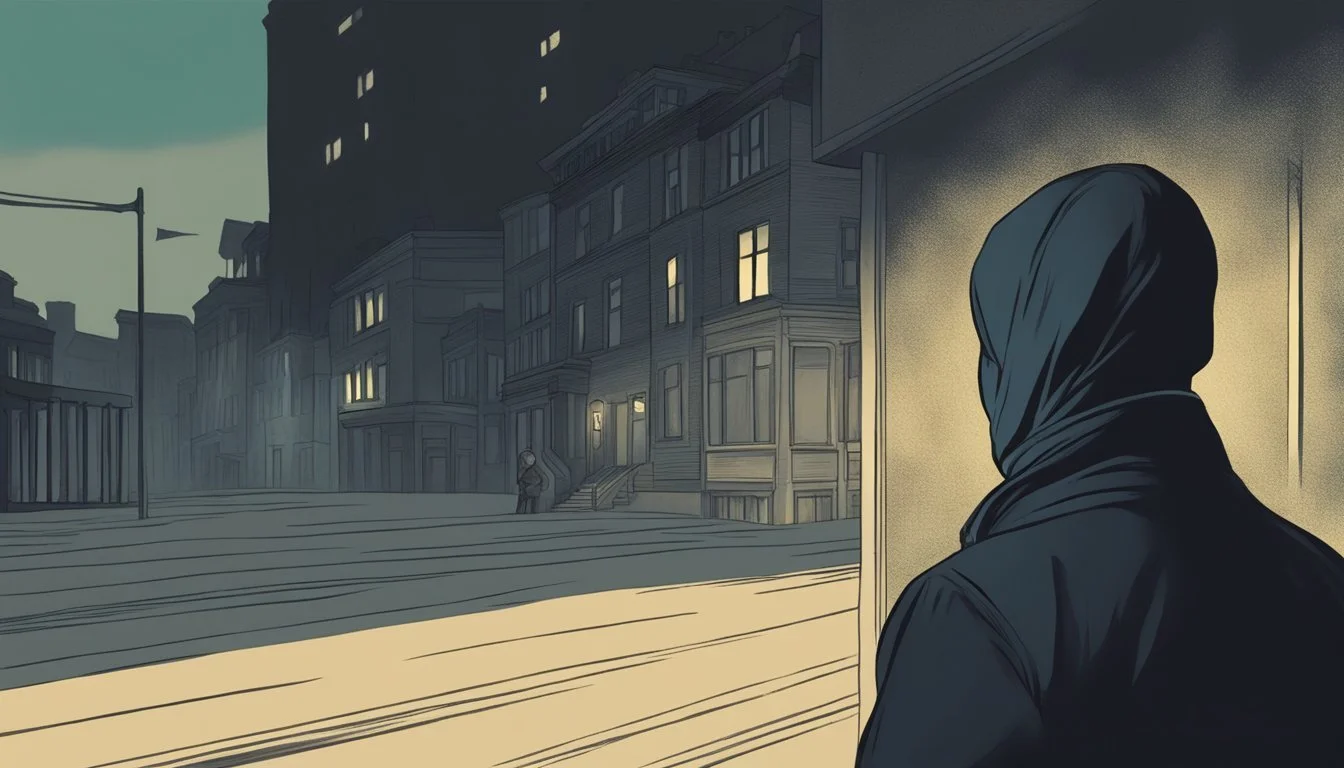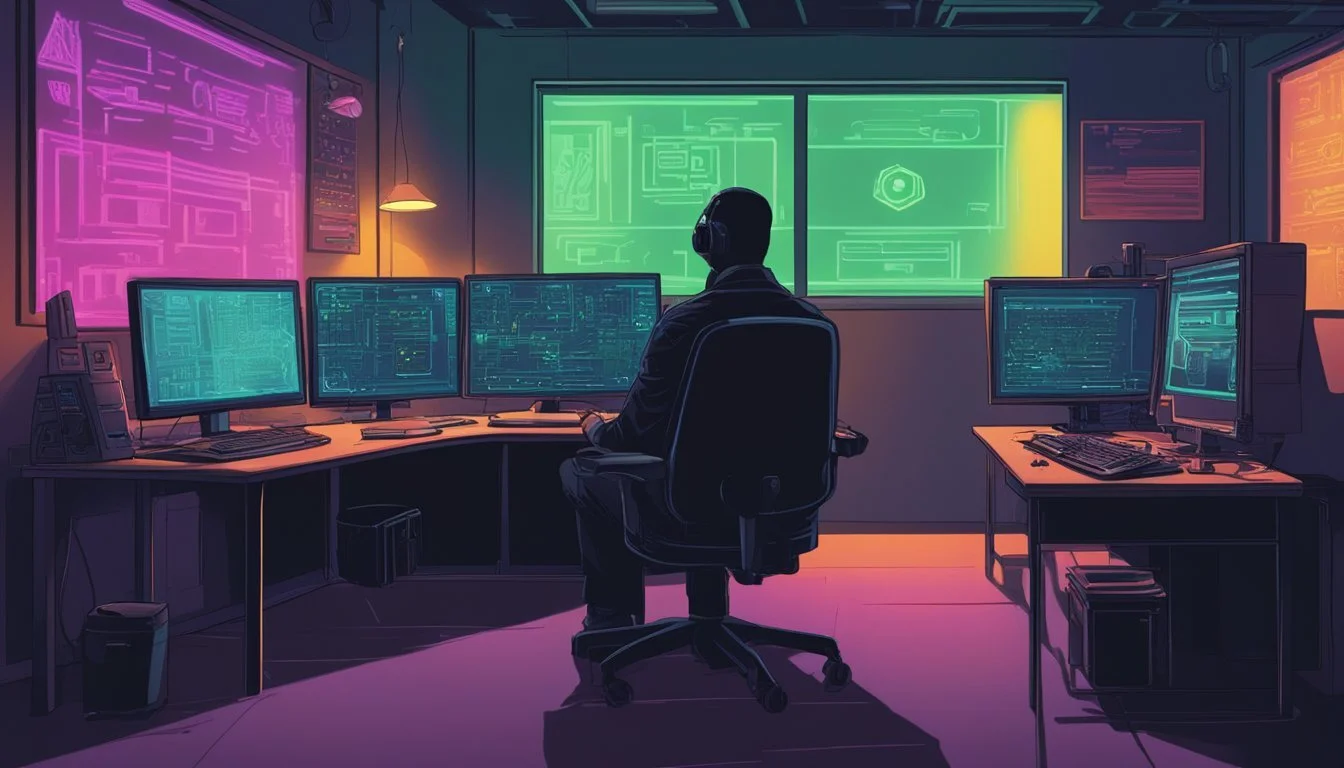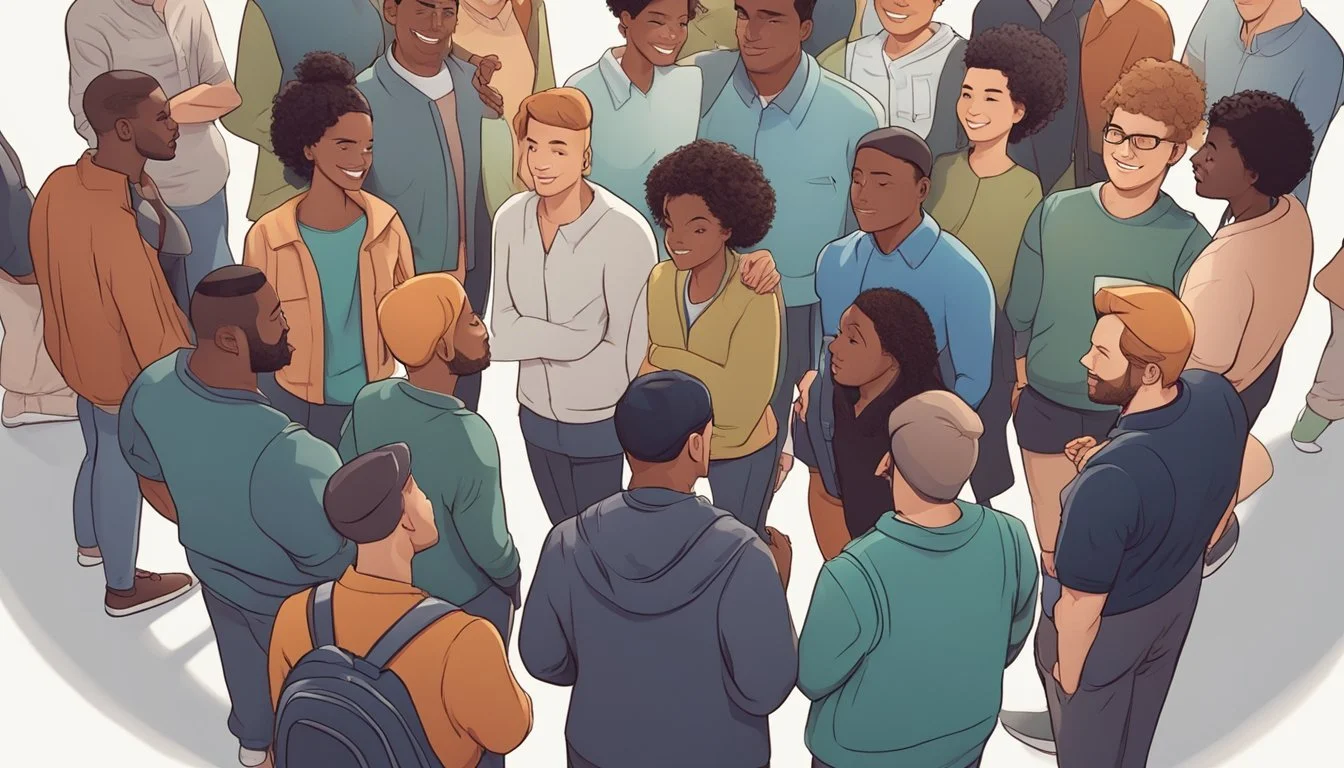Paranoia Game: Honing Your Skills in Deception and Tactical Thinking
Paranoia is a unique and hilarious party game that puts friendships to the test. Players whisper questions to each other and must guess who the asker had in mind when naming someone in response. The game's premise revolves around creating comical and sometimes awkward situations as participants try to figure out what was asked about them.
Originally designed as a tabletop role-playing game by Greg Costikyan, Dan Gelber, and Eric Goldberg in 1984, Paranoia has since evolved into various formats. The RPG version is set in a dystopian future where an omniscient computer controls society, while the party game adaptation focuses on revealing hidden thoughts and opinions among friends.
Paranoia can be played with simple pen and paper or through dedicated mobile apps. Its versatility allows for customization of questions to suit different age groups and social settings. From lighthearted inquiries to more provocative ones, the game offers endless possibilities for entertainment and social bonding.
Overview of Paranoia Game
Paranoia is a unique tabletop role-playing game set in a dystopian science-fiction world. It blends dark humor, satirical elements, and unconventional gameplay mechanics to create a distinctive gaming experience.
History and Creation
Paranoia was first published in 1984 by West End Games. The original designers were Greg Costikyan, Dan Gelber, and Eric Goldberg. Their creation quickly gained recognition, winning the Origins Award for Best Roleplaying Rules in 1984.
In 2004, Mongoose Publishing acquired the license to publish Paranoia. This transition brought new editions and expansions to the game. The Origins Awards Hall of Fame inducted Paranoia in 2007, cementing its status as a influential role-playing game.
Throughout its history, Paranoia has maintained its core concept while evolving to stay relevant in the changing landscape of tabletop gaming.
Game Setting
Paranoia takes place in Alpha Complex, a vast underground city controlled by an omnipresent artificial intelligence known as The Computer or Friend Computer. This dystopian society is characterized by:
Strict social hierarchy based on security clearance levels
Constant surveillance and paranoia
Rampant bureaucracy and inefficiency
Secret societies and mutant powers
Players take on the roles of Troubleshooters, low-ranking citizens tasked with missions by Friend Computer. These missions often involve impossible tasks or conflicting objectives, adding to the game's chaotic nature.
Gameplay
Paranoia's gameplay focuses on dark humor, player conflict, and navigating a treacherous social landscape. Key aspects include:
Multiple clone lives for each character
Encouraged player vs. player interactions
Absurd mission objectives and equipment
Rapid character creation process
The game master, often called Friend Computer, creates scenarios designed to challenge and confuse players. Success often depends on creative problem-solving and manipulating the complex social dynamics of Alpha Complex.
Cultural Impact
Paranoia's influence extends beyond the gaming community. Its satirical take on bureaucracy, totalitarianism, and technology has resonated with players for decades. The game's unique approach to:
Dark humor in roleplaying
Player conflict as a core mechanic
Dystopian science-fiction settings
has inspired other game designers and storytellers. Paranoia's lasting appeal lies in its ability to blend comedy with deeper social commentary, creating a gaming experience that is both entertaining and thought-provoking.
The Paranoia Rule System
Paranoia's rule system blends simplicity with chaos, emphasizing storytelling and player interaction over complex mechanics. It revolves around secretive missions, backstabbing, and absurd humor in a dystopian future.
Core Mechanics
Paranoia uses a d20-based system for task resolution. Players roll against target numbers, with higher rolls indicating better results. The GM can adjust difficulty based on the situation.
A key feature is the "Computer" stat, representing a character's standing with the all-knowing AI. Higher Computer ratings grant advantages but also attract more scrutiny.
Secret skills and equipment add unpredictability. Players may have abilities or items unknown to others, creating surprises during gameplay.
Character Creation
Characters in Paranoia are clones with six-letter names. Players choose from pre-defined roles like Loyalty Officer or Hygiene Officer.
Attributes include Violence, Brains, Chutzpah, and Mechanics. Each has a corresponding mutant power, kept secret from other players.
Security clearance determines access to information and equipment. All start at Red level, with promotions possible during play.
Players also select a secret society affiliation, adding hidden motivations and potential conflicts with team objectives.
Mission Structure
Missions in Paranoia follow a loose structure designed for chaos and humor. The Computer assigns tasks, often contradictory or impossible.
Briefings provide limited, often misleading information. Players must navigate complex social situations, avoid accusations of treason, and complete objectives.
Missions typically involve:
Investigating "traitors"
Testing experimental equipment
Exploring restricted areas
Dealing with rogue AIs or mutant outbreaks
Success often depends more on creative problem-solving and manipulation than combat prowess.
Combat and Actions
Combat in Paranoia is fast-paced and lethal. Laser weapons are common, with damage based on security clearance color.
Actions use a simple success/failure system. Players describe their intent, and the GM sets difficulty. Rolls above the target succeed.
Equipment malfunctions are frequent, adding to the chaos. Critical failures can result in comedic disasters or accidental self-harm.
Player vs. player conflict is encouraged. Backstabbing, framing others for treason, or sabotaging team efforts are all valid strategies for survival and advancement in Alpha Complex.
Game Strategy and Tips
Mastering Paranoia requires a blend of cunning, adaptability, and social finesse. Players must navigate treacherous alliances, guard secrets, and employ clever tactics to survive and thrive in this high-stakes game of deception.
Survival Strategies
Trust no one completely. Stay alert and observant of other players' behaviors and reactions. Form temporary alliances when necessary, but be prepared to switch sides quickly. Maintain a poker face to avoid giving away information through facial expressions or body language.
Keep your true intentions hidden and create a false persona if needed. Spread disinformation to confuse opponents and protect yourself. Be unpredictable in your actions to throw off those trying to anticipate your moves.
Develop a keen sense of timing for when to reveal information or make bold moves. Sometimes, staying under the radar is the best strategy, while other times, making a big play can shift the game in your favor.
Handling Secrets
Information is power in Paranoia. Guard your secrets carefully and only reveal them when absolutely necessary or when doing so provides a significant advantage. Use coded language or private conversations to communicate sensitive information to trusted allies.
Be cautious when sharing personal details that could be used against you. Create decoy secrets to mislead others and protect your true vulnerabilities. Pay close attention to what others say and do, as they may inadvertently reveal valuable information.
Develop a good memory to keep track of various secrets and pieces of information throughout the game. Use this knowledge strategically to gain leverage over other players or to protect yourself from potential threats.
Manipulation and Alliances
Master the art of subtle manipulation. Use flattery, promises, and strategic sharing of information to influence others' decisions and actions. Create doubt and paranoia among your opponents by planting seeds of mistrust.
Form alliances cautiously, always considering potential betrayals. Seek out players with complementary strengths to create mutually beneficial partnerships. Be prepared to break alliances when they no longer serve your interests.
Use body language and tone of voice to your advantage when interacting with other players. Practice your poker face and learn to read others' non-verbal cues. Employ misdirection tactics to keep opponents guessing about your true motives and allegiances.
Party and Drinking Variant
Paranoia transforms into an exciting party and drinking game with a few simple tweaks. This variant adds an extra layer of fun and social interaction, perfect for adult gatherings and celebrations.
Adapting Paranoia for Parties
To adapt Paranoia for parties, players sit in a circle with their favorite drinks. Each person takes turns whispering a question to the player on their left. The recipient answers out loud, naming someone in the group. If the named person wants to know the question, they must take a drink. This creates suspense and encourages social interaction.
For a more engaging experience, use themed questions. "Most likely to" prompts work well, such as "Who's most likely to get lost in their own neighborhood?" or "Who's most likely to become a reality TV star?" These questions spark laughter and conversation among friends.
Consider using a timer to keep the game moving. Set it for 30 seconds per question to maintain a lively pace.
Alternate Rules for Drinking Paranoia
Introduce drinking rules to spice up the game. If the named person guesses the question correctly, the asker drinks. If they guess wrong, they drink. This adds an element of strategy, as players try to craft questions that are hard to guess.
Create a "truth or dare" option. If someone refuses to answer a question, they must complete a dare or take two drinks. This adds variety and keeps players on their toes.
Use different drinks for different types of questions. Assign beers for funny questions, cocktails for spicy ones, and shots for deep or relationship-focused queries.
Safety and Considerations
While Paranoia can be a blast, it's crucial to prioritize safety. Set clear boundaries before starting. Establish a safe word that anyone can use to skip a question or pause the game.
Provide non-alcoholic options for those who don't drink. Juice, soda, or mocktails work well as substitutes. Encourage responsible drinking and have water available for all players.
Be mindful of the questions asked. Avoid overly personal or embarrassing topics that might make players uncomfortable. Keep the atmosphere light and fun, focusing on humor rather than potentially hurtful remarks.
Consider creating a family-friendly version for mixed-age groups. Replace drinking with point scoring or silly actions to include everyone in the fun.
Creative Elements of the Game
Paranoia's unique blend of dystopian sci-fi and dark humor creates a distinctive gaming experience. The game's core elements combine to produce an atmosphere of suspicion, absurdity, and constant peril for players.
Red Clearance and Troubleshooters
Troubleshooters, the player characters in Paranoia, operate at Red clearance level. This low-ranking status places them in constant jeopardy. They must navigate a complex social hierarchy while carrying out dangerous missions.
Red clearance grants limited access to information and resources. Troubleshooters often lack crucial details for their assignments. This intentional design creates tension and forces creative problem-solving.
Players must balance following orders with self-preservation. Disobedience risks punishment, but blind compliance can be equally hazardous. This dilemma fuels much of the game's drama and humor.
Friend Computer and Underground Movements
Friend Computer, the omnipresent AI ruler, serves as both patron and antagonist. It issues contradictory directives and enforces arbitrary rules. Players must appease Friend Computer while navigating its inconsistent logic.
The computer's surveillance is near-total, fostering paranoia among characters. Private conversations and covert actions become high-stakes gambles.
Underground movements add another layer of complexity. These secret societies pursue their own agendas. Players often hold conflicting loyalties between these groups and Friend Computer.
Balancing official duties with clandestine activities creates rich roleplaying opportunities. It also adds to the game's signature atmosphere of mistrust and suspicion.
Humor and Satire in Paranoia
Paranoia's satirical edge sets it apart from many RPGs. The game spoofs bureaucracy, totalitarianism, and blind obedience to authority. Its dark humor stems from the absurdity of life in Alpha Complex.
Rules encourage players to betray each other for personal gain. This mechanic generates both comedy and tension. Elaborate schemes often backfire in spectacular fashion.
The game lampoons consumer culture and corporate jargon. Product names and slogans are designed for maximum comedic effect. Even routine tasks can become farcical ordeals due to convoluted procedures.
Paranoia's humor serves as social commentary. It invites players to reflect on real-world power structures through the lens of exaggerated dystopian fiction.
Community and Support
The Paranoia game has fostered a vibrant community of players and creators. Fans share experiences, resources, and creative content through various channels. Game developers actively engage with the community to improve and expand the Paranoia universe.
Online Forums and Discussions
Dedicated forums and social media groups serve as hubs for Paranoia enthusiasts. Players discuss strategies, share memorable moments, and seek advice on complex game mechanics. Popular platforms include Reddit's r/ParanoiaRPG and BoardGameGeek's Paranoia forums.
These online spaces allow newcomers to learn from experienced players and Game Masters. Veterans often post detailed session reports, providing inspiration for creative scenarios. Rules clarifications and house rule suggestions are frequently debated, enhancing gameplay for all.
Fan Creations and Expansions
Paranoia's flexible nature has inspired numerous fan-made expansions and scenarios. Creative players design custom mission briefings, new mutant powers, and even entire campaign settings. These are often shared freely within the community.
Some fans produce high-quality artwork, including character portraits and sector maps. Others create custom forms and handouts to enhance the game's bureaucratic feel. Podcasts and actual play videos showcase different playstyles and interpretations of the game world.
Official Updates and Releases
Mongoose Publishing, the current license holder, regularly releases new content for Paranoia. They maintain an official website with news, errata, and downloadable resources. The company has successfully used Kickstarter to fund major releases, including the recent XP edition.
Paranoia has received multiple Origins Awards, recognizing its impact on the tabletop RPG industry. Each new edition brings rules refinements and setting updates to keep the game fresh. The developers actively seek community feedback, often incorporating popular fan concepts into official material.
Frequently Asked Questions
Playing the Paranoia Game raises common questions about rules, troubleshooting, and enhancing gameplay. These FAQs address key aspects to ensure an enjoyable experience for all participants.
Starting the Game
Players often wonder about the best way to begin. Start by gathering a group of 4-8 people in a comfortable setting. Choose a question-asker to whisper the first question to another player. The recipient then answers out loud, naming someone in the group. If the named person wants to know the question, they can flip a coin. Heads reveals the question, tails keeps it secret.
Set clear boundaries before playing. Establish rules about question content and personal limits. Some groups prefer to keep questions light and fun, while others enjoy more risqué topics. Respect everyone's comfort levels.
Consider using a timer to keep the game moving. This prevents long pauses and maintains excitement. Aim for 30-60 seconds per turn.
Troubleshooting Common Issues
Players may struggle with coming up with questions. Keep a list of pre-written questions handy for inspiration. Encourage creativity, but avoid overly personal or hurtful queries.
If someone feels uncomfortable, allow them to pass without penalty. Create a safe word or signal for players to use if they need a break or want to skip a question.
Address any conflicts promptly. Remind players that the game is meant to be fun and not cause real tension. If issues persist, take a break or switch to a different activity.
Expanding the Game Experience
To keep the game fresh, introduce themed rounds. Try categories like "childhood memories," "future predictions," or "desert island scenarios." This adds variety and sparks new conversations.
Incorporate physical challenges or dares alongside questions. For example, the person named might have to do a silly dance or attempt a tongue twister.
Create a points system for added competition. Award points for creative questions, funny answers, or correct guesses about the original question. The player with the most points at the end wins a small prize.






